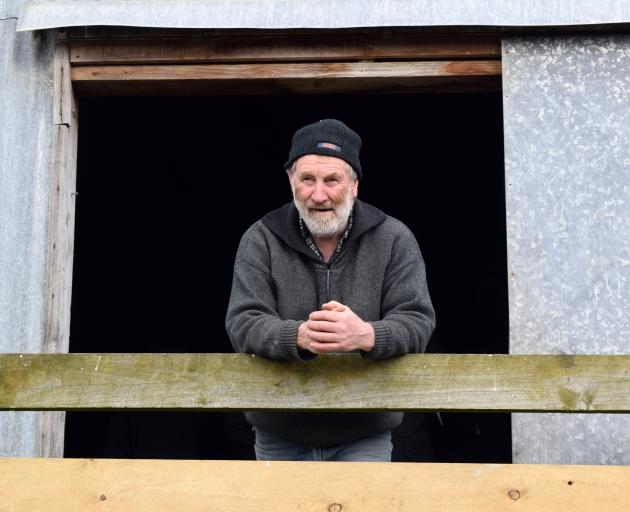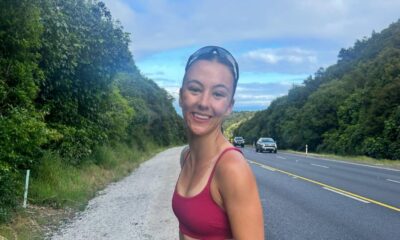Science
New Zealand Study Tracks Facial Eczema’s Impact on Sheep Farming

A comprehensive study led by Beef + Lamb New Zealand is currently assessing the impact of facial eczema on sheep farms across the country. The research, which involves analyzing fresh sheep manure, has entered its third and final season. According to Dr. Cara Brosnahan, an animal health research principal scientist based in Wellington, the study aims to provide a clearer understanding of how this disease affects livestock and farmers.
During the second season of the study, low levels of facial eczema spores were detected on four sheep farms in Otago, while one farm in Southland reported similar findings in the initial season. The disease can affect all grazing livestock, except horses, when they consume enough toxic fungal spores found mainly in ryegrass. Farmers are notified when spores are identified in their manure samples and are encouraged to continue monitoring spore levels.
The research highlights that livestock may not exhibit visible signs of infection, particularly when exposure to spores is low. Subtle indicators, such as decreased productivity or increased empty rates during pregnancy scanning, can suggest underlying issues. Clinical signs of facial eczema have been observed from Northland to the West Coast, with over half of the manure samples from the northern half of the South Island showing evidence of the disease.
Understanding the Risk Factors
The study is investigating various factors that may influence the likelihood of facial eczema outbreaks, including farm elevation, pasture height, and neighboring farms’ spore counts. The final season of data collection is crucial for confirming these potential relationships.
Participation in the study is free and straightforward. Farmers collect sheep manure samples every two weeks from October to May. Beef + Lamb provides the necessary kits and covers postage costs. In return for their contributions, farmers receive results that enhance their understanding of their risk for facial eczema, along with a $40 subsidy for faecal egg count testing and an opportunity to be selected for monthly larval culture testing.
The economic implications of facial eczema are significant, with the disease costing the sector more than $330 million annually. Dr. Brosnahan emphasized the importance of increased participation, especially from farmers who have never detected the disease on their properties. “These results help build our understanding of this devastating disease,” she stated.
Farmers Taking Initiative
Sheep farmer Graham Evans, who operates Barr Falls Farm in Owaka, is an advocate for greater involvement among southern farmers. He has been collecting and sending fresh manure samples since the study began and has yet to detect any facial eczema spores on his farm. Evans believes that understanding the disease’s potential spread southward is essential, regardless of differing opinions on climate change.
He expressed concern that the disease’s arrival in the south is inevitable, stating, “We don’t know what we don’t know.” Evans hopes that more farmers will join the study to contribute to a collective understanding of how conditions vary between different sheep farming environments.
Facial eczema can lead to severe health issues in livestock, including liver damage, reduced fertility, weight loss, and in extreme cases, death. Dr. Brosnahan stressed the lack of a cure, underlining the necessity of proactive management to prevent outbreaks.
The ongoing research promises to provide valuable insights into facial eczema’s impact and management, ultimately benefiting farmers and the agricultural sector as a whole.
-

 World1 week ago
World1 week agoPrivate Funeral Held for Dean Field and His Three Children
-

 Top Stories2 weeks ago
Top Stories2 weeks agoFuneral Planned for Field Siblings After Tragic House Fire
-

 Sports3 months ago
Sports3 months agoNetball New Zealand Stands Down Dame Noeline Taurua for Series
-

 Entertainment3 months ago
Entertainment3 months agoTributes Pour In for Lachlan Rofe, Reality Star, Dead at 47
-

 Entertainment2 months ago
Entertainment2 months agoNew ‘Maverick’ Chaser Joins Beat the Chasers Season Finale
-

 Sports3 months ago
Sports3 months agoSilver Ferns Legend Laura Langman Criticizes Team’s Attitude
-

 Sports4 weeks ago
Sports4 weeks agoEli Katoa Rushed to Hospital After Sideline Incident During Match
-

 Politics2 months ago
Politics2 months agoNetball NZ Calls for Respect Amid Dame Taurua’s Standoff
-

 World2 weeks ago
World2 weeks agoInvestigation Underway in Tragic Sanson House Fire Involving Family
-

 Top Stories2 weeks ago
Top Stories2 weeks agoShock and Grief Follow Tragic Family Deaths in New Zealand
-

 Entertainment3 months ago
Entertainment3 months agoKhloe Kardashian Embraces Innovative Stem Cell Therapy in Mexico
-

 World4 months ago
World4 months agoPolice Arrest Multiple Individuals During Funeral for Zain Taikato-Fox




















